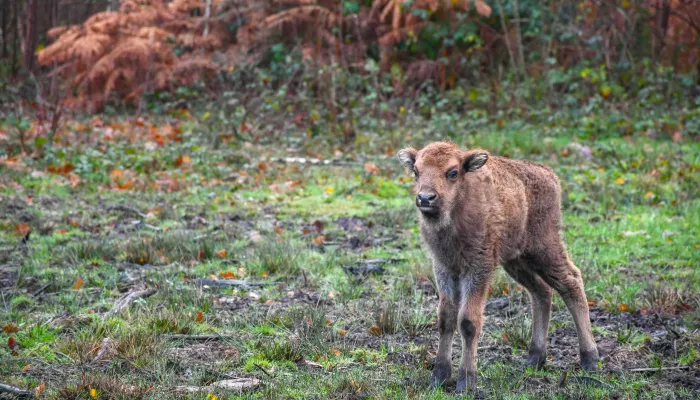Conservationists have spoken of their delight following the birth of a second calf from the herd of the Wilder Blean Project a pioneering award-winning partnership between Kent Wildlife Trust and Wildwood Trust, in Canterbury, Kent.
The new arrival has been described as “the best Christmas present” proving the success of the Blean bison project which is supporting the return of this vulnerable species as part of the European recovery project.
The herd was introduced into West Blean and Thornden Woods in 2022, firstly in July with three females, one of whom unexpectedly gave birth in September and then later the bull in December, who had been delayed due to post-Brexit paperwork complications.
The latest arrival and sixth member of the herd is the first to have been conceived and born in the woodland from the specially selected founding herd.
Bison boost biodiversity
The bison are a Nature-based Solution to woodland management, shaping the habitat around them without the need for machinery and human intervention. The natural behaviours create standing deadwood and bring light to the forest floor, which in turn boosts biodiversity. The project is the first of its kind in the UK and intends to act as a blueprint for others to run similar wilding initiatives in the future.
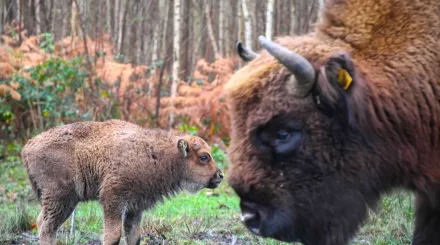
Donovan Wright
Genetically rich bloodline
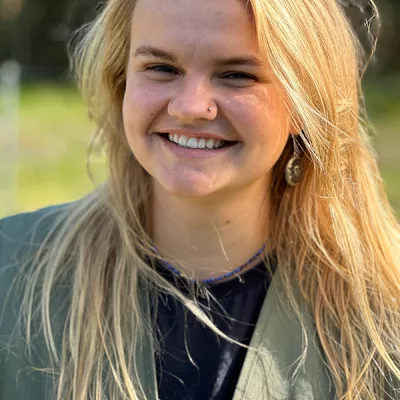
This is the best present we could have asked for, our founding members successfully breeding so soon after their introduction. The matriarch is 19 years old, and we were aware that she had difficulties in a previous pregnancy, but in the Wilder Blean environment we have the benefit of the woodland environment and being able to monitor her several times a day and she has done so well. She is an amazing Mum and we are so proud of her. This joyous addition to the herd demonstrates the project is making excellent progress in species recovery by supporting this vulnerable species.Bison and Conservation Grazing Ranger Hannah Mackins
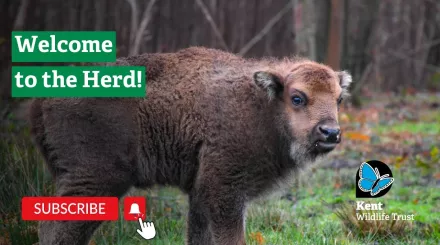
© Tim Horton
Welcome to the world!
Support the herd
On this occasion, the calf has been born out of the breeding season and rangers are paying the herd extra attention to ensure their wellbeing,
Hannah Mackins added: “The welfare of the herd is at the absolute heart of what we do and whilst we are keen for them to behave wildly, it must not be at the cost of their health. With this in mind, whilst there is less vegetation in the woodland, we are offering the herd supplementary feeding to ensure they stay fit and well.”
Back from the brink
Bison are a huge conservation success story by their sheer existence. After WWI the number of European bison had fallen dramatically, and the species were on the verge of extinction. A decision was made to attempt to save them and a founding herd of 12 were brought together from private zoo collections to take the first steps towards a breeding programme. Today over 9,000 bison are registered with the European breeding programme.
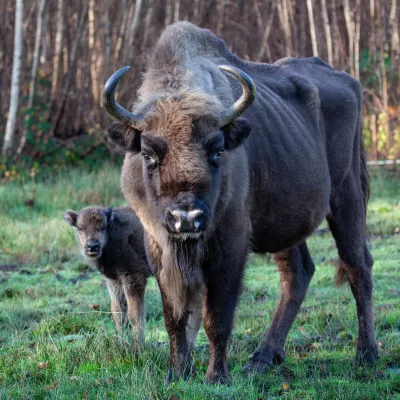
Bison were brought back from the brink of extinction following catastrophic persecution. These animals have been selected from the most diverse genetic lineage to establish this Internationally important herd. This young calf will play a valuable role in further securing the future of European bison.Mark Habben of Wildwood Trust
Room to grow
Now the herd is growing, work is beginning to install bison bridges, crossing points that will offer the giant herbivores full access to the 200 hectare woodland and provide a vantage point for visitors to the forest the opportunity to spot the bison and other conservation animals of West Blean and Thornden Woods. Planning has been approved for the structures and work is scheduled to start in the spring.
Sponsorship opportunities of the herd are available for businesses wishing to support the development of the project at West Blean and Thornden Woods, helping Kent Wildlife Trust connect the site for the bison, Exmoor ponies, iron-age pigs, and longhorn cattle that now live in the forest, shaping the landscape through their natural behaviour.
Phase two of the Wilder Blean is to create a landscape-scale wilding project, through the Wilder Blean Initiative, a partnership with the RSPB and Woodland Trust. By working with the community and stakeholders we’re bringing together knowledge, expertise and ideas to build the vision of a restored Blean landscape driven by natural processes, with missing species returned, that is reconnected and wilded in one of the most land-scarce corners of England.
The initiative was given a significant boost in July when Rewilding Britain awarding the project £100,000 from their first Rewilding Challenge Fund.
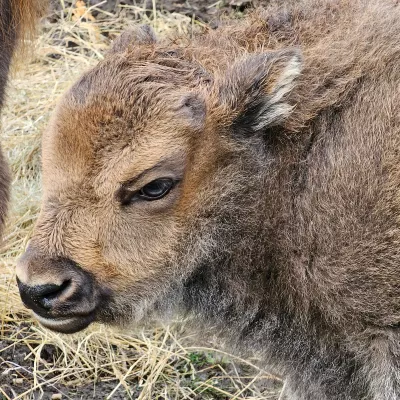
Wilder Blean started with the use of ecosystem engineers, the bison, and other conservation grazers in West Blean and Thornden Woods, now we’re looking at how we can scale up this effort, which could see these important animals managing our ancient woodlands across the Blean complex. Working with a broad range of people we’re building a vision that will hopefully result in a large, connected landscape that works for both people and wildlife – the ultimate goal of rewilding.Wilder Blean Landscapes Development Manager, Helen Pitman
Project recognised as innovative game-changer in conservation
The project has captured has been recognised as being a game-changer in conservation innovation with judges awarding it the Gold standard award at the Global Good Awards, winning the Biodiversity Protection Award at the National Sustainability Awards, and scooping the Innovation Award at the Big Biodiversity Challenge.
Latest news
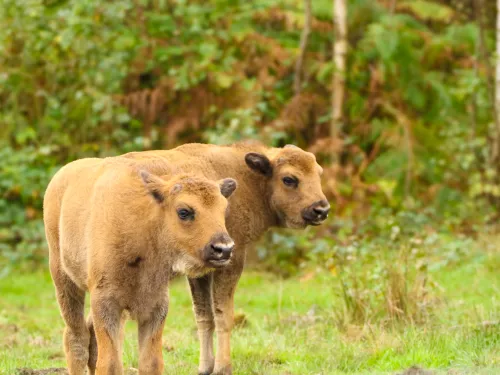
Welcome “two” the herd
Ground-breaking wilding project welcomes the birth of two female bison calves
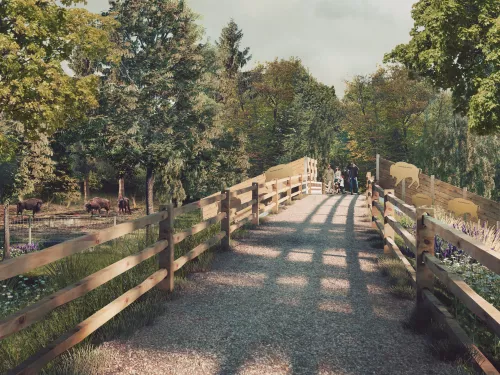
Construction of the UK’s first-ever bison bridges gets underway
The bridges will allow the UK’s only wild bison herd access to 200 hectares of West Blean and Thornden Woods in Canterbury.
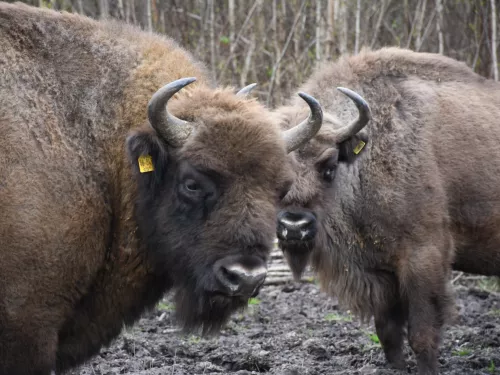
Ground-breaking wilding project reaches two-year milestone
Since 2022, the UK has sworn in four new prime ministers, the interest rate has risen from 0.25% to 5.25%, and, as of the 18th July, bison have been in the Blean for two whole years.

